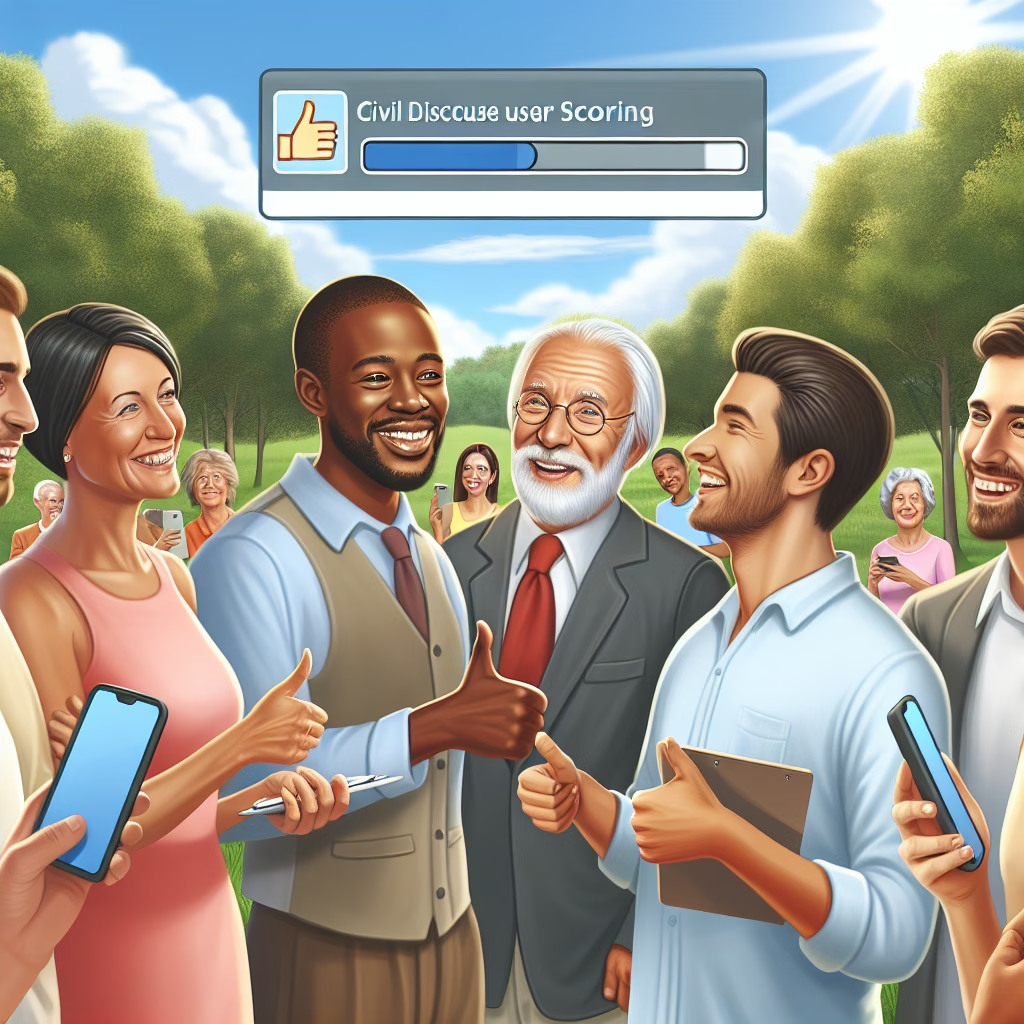In a world where social media can feel like a high-stakes reality show—complete with drama, backstabbing, and the occasional cat video—one platform is making an audacious bid to restore civil discourse. Yes, you heard it right! This platform aims to transform our digital interactions into something that resembles actual conversation rather than an online wrestling match. Welcome to the future of social media: user scoring!
The Quest for Better Online Conversations
Imagine a place where your online interactions don’t leave you feeling like you’ve just endured a verbal cage match. Thanks to the innovative idea of scoring users, we might just be on the brink of this utopia. This platform is rolling out an ambitious plan to encourage respectful conversations by assigning users scores based on their interaction quality. Think of it as a fun little report card for adults!
Now, before you roll your eyes and think, “Oh great, another way to judge people online,” let’s take a moment to appreciate the potential upside. By gamifying civility, users might actually strive to earn those golden stars of respect and empathy. Who knew we could turn kindness into a competitive sport?
User Scoring: The Good, The Bad, and The Potentially Hilarious
So how does this scoring system work? The platform analyzes user interactions and assigns scores based on factors like politeness and constructive feedback. It’s like having your mom in your digital corner, gently reminding you that using all caps is akin to yelling at someone across a crowded room.
- Politeness: Users earn points for using respectful language.
- Constructive Feedback: Helpful comments score higher than derogatory remarks.
- Engagement Quality: Meaningful interactions lead to positive scores.
The benefits? Well, studies show that positive reinforcement can lead to better behavior. Imagine logging in and seeing that shiny score next to your name! It’s enough to make even the grumpiest of trolls reconsider their life choices. Plus, with scores on display, users might think twice before typing something inflammatory. After all, no one wants their score to drop faster than a hot potato!
But Wait! What About the Critics?
As with any revolutionary idea, not everyone is popping champagne over this new approach. Critics argue that scoring could lead to a new form of social pressure or even create an elite class of ‘high scorers.’ Can you picture it? A digital hierarchy where only the best-behaved get VIP access to group chats!
However, let’s not forget the potential for humor here. We can already imagine the playful banter between friends: “Sorry, I can’t chat right now; my civility score is at risk!” Or perhaps someone will create a meme depicting someone desperately trying to raise their score while simultaneously engaging in epic online debates. This playful spirit could ultimately engage users even more!
Will This Platform Succeed?
The real question is whether this strategy will take off or fade into obscurity like so many other social media trends (remember when we thought selfies would change the world?). Only time will tell if user scoring can genuinely enhance our online experiences or if we’ll simply find new ways to game the system.
One thing’s for sure: if this platform succeeds in restoring civil discourse among its users, it could inspire other platforms to follow suit. Maybe one day, we’ll look back at this era as the time when we collectively decided that shouting into the void wasn’t as fulfilling as having a nice chat over virtual coffee.
Embracing Change in Social Media Interactions
So there you have it! The brave new world of user scoring is upon us, promising more civility and less chaos in our digital lives. As we navigate this brave new world of social media interactions in 2025 and beyond, let’s keep our fingers crossed (and our scores high!) for a future filled with respectful exchanges.
What do you think about user scoring? Will it bring about a renaissance of civil discourse or will it be just another gimmick? Share your thoughts below!
For further reading, you might be interested in our articles on Google Chrome’s recent security challenges or how modern statistical analysis was influenced by surprising events. Dive deeper into how technology shapes our interactions!

